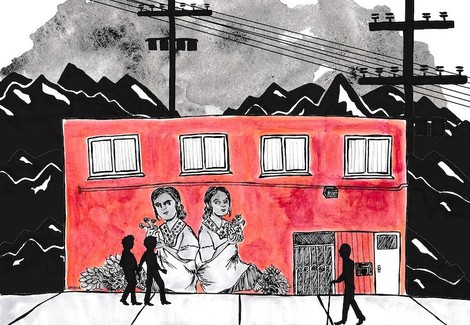Your podcast discovery platform
Curious minds select the most fascinating podcasts from around the world. Discover hand-piqd audio recommendations on your favorite topics.

piqer for: Climate and Environment Globalization and politics Deep Dives
Annie Hylton is an international investigative journalist from Canada. She writes about gender, immigration, human rights, and conflict, and has worked in East Africa, the Middle East, Central America, and elsewhere. She teaches journalism at Sciences Po in Paris and was a former international lawyer focusing on situations of conflict. Hylton is a graduate of Columbia University’s Stabile Center for Investigative Journalism and also holds a J.D. and Master of Laws in international humanitarian law.
Coachella's Underground Latino Community Adjusts To Life Under Trump
You've almost certainly heard of Coachella, where an annual music festival hosts international stars and its VIP tickets cost $900 USD. Hip festival-goers can also rent trendy yurts for thousands of dollars. But, the festival has little bearing on the lives of the thousands of Latino farmers who live in the valley's east side, "except perhaps as a reminder of how easy it is not to see them."
In eastern Coachella Valley, made up of several unincorporated communities, Latinos have found safety in numbers: in Thermal, its population is 99.9 percent Latino. Nearby, Mecca is 99.9 percent Latino, Oasis is 98.2 percent Latino, and Coachella is 97.5 percent Latino.
This investigative story, a partnership with Longreads and The Nation Institute Investigative Fund, follows the lives of several of the people who live in those communities as they adapt to the Trump presidency. In Coachella, also home to a Border Patrol station, people heard Trump's anti-immigrant messages loud and clear: No one was safe.
Rumors of raids in Coachella Valley, in February 2017, ripped fiercely through communities. Border Patrol agents set up checkpoints, demanding documents from people entering or leaving food stores, rounding up people in Cardenas stores, many of the residents had heard. People panicked. They soon found out it was a rumor. The fear, nevertheless, was very real.
Parents, no longer wanting to turn over information to the federal government for fear of being deported, stopped enrolling their U.S.-born children in Head Start, food stamps, and other programs.
"This was one of the harshest consequences of the fear: Immigrants were staying away from the very institutions designed to sustain them and elevate their children."
The fear has caused some to go hungry; they are too afraid to leave the house. But others are defiant. Ortiz, an immigrant activist in the area, told AJ+ on camera: “I would like to send a message to my Latino people: show your faces.”
